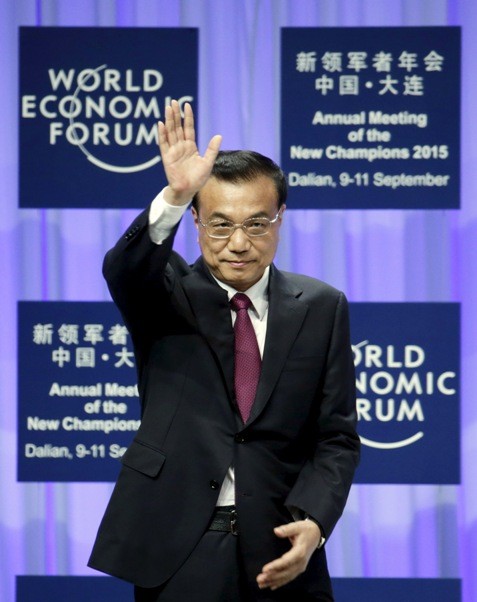China's Premier Premier Li Kegiang had a speech on Wednesday in an attempt to quell global growth fears. He declared that that the economic prospects remain positive and the largest market in the world has fended off the major risks to its financial system.
The Chinese PM reassured global markets that Beijing can keep stock markets in check and its economy on track. During his speech at the World Economic Forum, a Switzerland based think-tank that runs the Davos summit of world leaders, Li said that China's government took the proper measures to prevent the risks from spreading by stabilizing the market and forcing out the possibility of any systemic risks, according to The Island Packet.
For a second day on Wednesday, China stocks rebounded to a three-week high. In hopes of fresh government stimulus, the Shanghai market is moving into positive territory for the year.
The Shanghai Composite Index gained 2.3 per cent, to 3,243.09 points, while the CSI300 index of the rose 2.0 per cent, to 3,399.31.
On Thursday most emerging Asian currencies slid as mounting fears of a global economic slowdown minimized risk appetite. The appeal of the region's higher yields was counterbalanced by expectations of an imminent US interest rate hike.
China's deflation risks were deepened by the fastest rate in August of reducing manufacturing prices in six years.
For a second straight month in July, Japan's key gauge of capital spending unexpectedly fell, adding to supplementary pressure on the Bank of Japan to provide fresh stimulus, according to the Economic Times.
New Zealand's central bank declared, after lowering is benchmark interest rate, that a further slowdown in China could lead to more rate cuts and in case that it would undermine New Zealand's growth.
By contrast, Federal Reserve might raise interest rates this year, as US job openings hit a record high in July, which. Philip Wee, senior currency economist at DBS in Singapore declared that the underlying trend for the USD is still depending on monetary divergences and the market sentiment is still fragile in the region.
Wee added that Asian countries are unlikely to support regional currencies for a long term even if they are taking various economic steps at the moment to help stabilize market trust. According to him, while the Fed has yet to start lifting rates and the CNY (yuan) has just depreciated, it is still too early to talk about major changed in market trend.



























